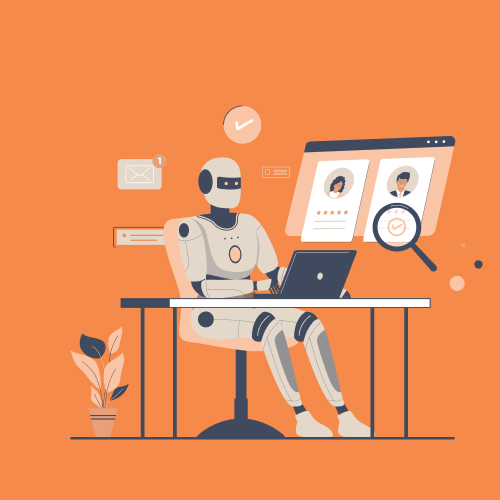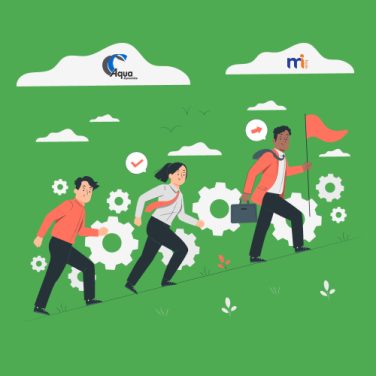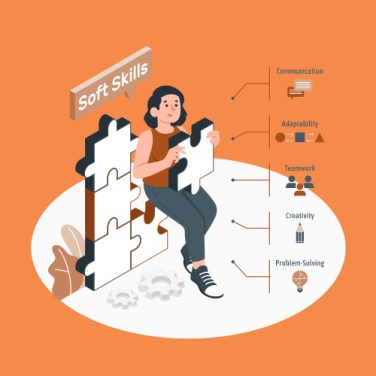Artificial Intelligence (AI) has become a pivotal tool in optimising Human Resources (HR) recruitment processes. However, while its ability to sift through vast amounts of data can streamline and enhance decision-making, it also poses challenges – particularly in the form of AI biases.
AI bias in recruitment refers to systematic and unfair favouritism or disadvantage embedded in algorithms that evaluate and select candidates. These biases often arise from the data sets used to train AI models, which may reflect historical social prejudices and inequalities.
In HR, AI biases can manifest in ways such as gender bias, where male candidates might be favoured over female ones due to skewed data sets that amplify existing inequalities.
Similarly, racial biases may emerge if the AI systems are trained on data that underrepresents minority groups, leading to unfair exclusion from recruitment processes.
The impact of these biases can be detrimental to organisations, leading to a less diverse workplace and potential legal repercussions.
AI biases can also erode trust and transparency in HR departments, posing ethical challenges that companies need to address urgently.
HR departments face significant challenges in mitigating these biases, including the need to continuously monitor and adjust AI-driven processes to ensure fair recruitment practices.
By understanding and addressing AI biases, companies can foster more inclusive hiring practices that promote diversity and equality.
Risks of biased AI

Employing AI in HR, particularly in recruitment, brings forth a range of ethical challenges of AI. These challenges often stem from the presence of AI biases in human resources, which can lead to skewed hiring outcomes and inadvertently perpetuate existing inequalities.
- Lack of transparency: AI systems can operate as ‘black boxes,’ making it difficult for HR professionals to understand the decision-making processes behind candidate evaluations. This lack of transparency can obscure potential biases and hinder accountability.
- Data quality issues: AI recruitment tools rely heavily on historical data, which might contain biases due to unequal societal patterns. Such data can lead AI systems to replicate or even amplify discriminatory practices inadvertently.
- Privacy concerns: The use of AI in HR necessitates the collection and analysis of large sets of personal data. This raises concerns over data privacy and consent, especially when sensitive information is involved.
Addressing these risks requires a robust set of guidelines for ethical AI implementation in HR. Businesses must ensure their systems undergo continuous scrutiny and improvement to align with ethical standards. MiHCM software is designed to tackle these challenges by allowing HR teams to make data-informed decisions while prioritising fairness and transparency.
By adopting ethical AI frameworks, organisations can navigate these challenges more effectively. They need to keep their AI tools in check, ensuring bias mitigation strategies are in place, such as rigorous testing, diversity in data sets, and regular audits of AI outputs.
Bias identification and correction
As we embrace AI-driven technologies in human resources, identifying and correcting biases becomes a crucial task in building a fair recruitment process. Mitigating these biases requires organisations to adopt proactive strategies that ensure AI tools are functioning ethically and effectively.
Regularly auditing AI systems is an essential step, wherein algorithms are not only monitored for anomalies but also updated to reflect changing standards of diversity and inclusion. Frequent audits ensure that data stays representative and inclusive, minimising risks and promoting ethical challenges of ai decisions.
- Continuous monitoring: Organisations must commit to continuous evaluation and tuning of AI systems, ensuring that biases are quickly addressed and rectified. This involves regular checks and updates to keep algorithms reliable and unbiased.
- Diverse data sets: The key to minimising bias is using comprehensive and diverse data sets that represent a broad range of candidates. This prevents data-driven decisions from inadvertently favouring one group over another, fostering a balanced approach to recruitment.
- Collaborative approach: Bringing together cross-functional teams to review AI-driven decisions can provide a broader perspective on potential biases, promoting diversity and inclusivity.
Moreover, leveraging tools like those offered by MiHCM can significantly enhance an organisation’s ability to mitigate AI biases.
MiHCM’s features empower HR professionals to analyse diversity metrics, uncover bias trends, and devise strategies for improvement. These tools provide substantial benefits by narrowing the avenue for biases and offering data-driven insights into recruitment processes.
In conclusion, while AI presents potential challenges, it also offers opportunities for organisations willing to implement and maintain accountable practices. Through strategic bias identification and using advanced analytics, companies can create a more inclusive and fair recruitment process.



